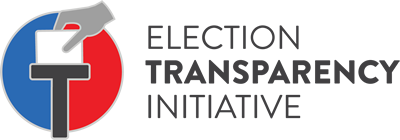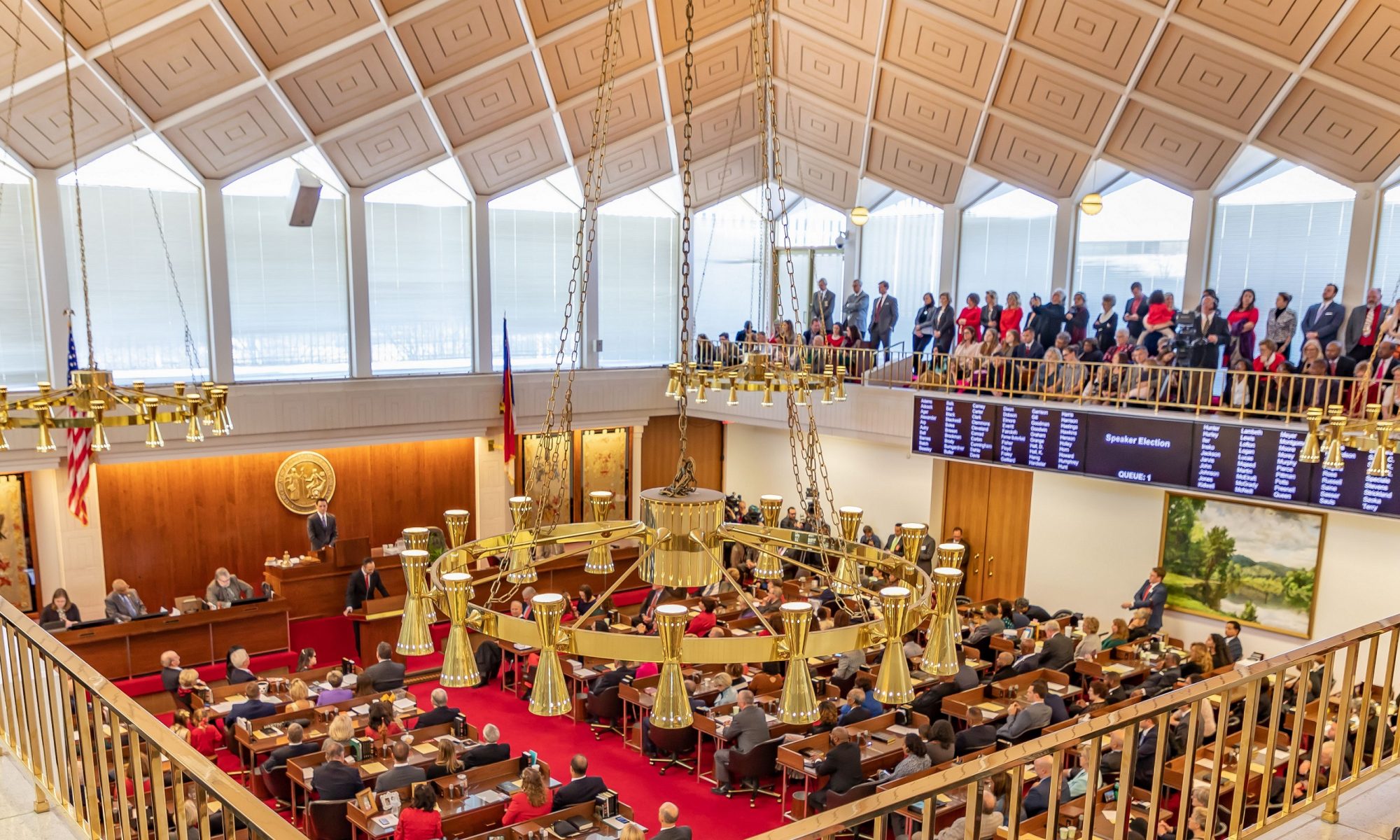FOR IMMEDIATE RELEASE: June 26, 2023
Promising elections bill gutted by Senate Republicans, fundamental poll worker protections & voter list maintenance ignored
Washington, D.C. – The North Carolina General Assembly is currently considering long-anticipated legislation to reform the state’s elections. Introduced on June 1, Senate Bill 747 lacked several key ballot and voter integrity elements but contained a number of provisions supporting more fair, transparent, and accountable North Carolina elections.
The majority of the positive reforms contained in S.B. 747 were subsequently stripped in committee—in some cases weakening statutory language—before the bill was reported last week to the House.
Presently, North Carolina’s voter lists are in disarray, with as many as 14 percent (one million) of registrants having been identified as duplicates or ineligible. Mail-in voting is exploited by non-governmental organizations, which print hundreds of thousands of ballot request forms with bar codes for the purpose of illegally identifying and tracking those who are voting by mail—skirting state law which precludes early disclosure of those voting by mail.
Additionally, according to the State Wide Election Integrity Reporting System (SEIRS) poll observers are being denied the freedom to observe, inspect, and report, nor is there parity in partisan representation for election observers during early voting, as required by law. Thousands of voters are currently permitted to show up to register and vote a regular ballot on the same day during early voting, which is immediately scanned and counted without address verification. Importantly, there is no capability to effectively audit election results, with only about half of North Carolina voters believing elections are fair and accurately tallied.
According to a recent survey by Rasmussen Reports, more than half of U.S. voters doubt the next presidential election will be conducted fairly.
National Chairman of the Election Transparency Initiative and former Virginia Attorney General Ken Cuccinelli issued the following statement:
“As introduced, S.B. 747 was a step in the right direction for election integrity, such as prohibiting private funding for local election offices and requiring retention of election records, signature verification, and removal of foreign nationals from voter lists. It’s profoundly disappointing that instead of addressing the bill’s shortcomings, it was gutted by the Senate and regrettably reverses or greatly reduces the effectiveness of a few worthy provisions. The reality is that in its current form, S.B. 747 continues to omit vitally important loophole closures that will allow ballot, voter, and election fraud to occur in North Carolina.
“It’s now incumbent on the House to reject the status quo, stand tall for free and fair North Carolina elections, and deliver real election integrity inspiring the trust of voters. Without delay, we urge the House to employ the various legislative tools at their disposal to fix the deficiencies in the omnibus elections bill before it passes out of the House, and to merge the provisions of House Bill 770 (access to voted ballots) and House Bill 772 (poll observer access and protections) which give election integrity the durability and permanence voters deserve.
“So much is at stake. For years the state’s anti-election integrity governor and the hyper-partisan State Supreme Court have made it impossible to confront many of the biggest threats to secure, transparent, and accountable elections in the state. But Republicans now hold veto-proof majorities in both the House and Senate and voters have installed a new State Supreme Court free from the most radical elements who long-obstructed election integrity.”
Senate Bill 747 Deficiencies:
- No protections for poll observers to perform their duties as prescribed by law (NCGS 163-45).
- No allowance for citizens to provide affidavits or other evidence to local boards of elections (BOEs) to correct known deficiencies on county voter lists.
- No partisan parity at early voting sites as required at precincts on Election Day.
- Does not require that all voters using same day registration and voting be issued a provisional ballot to allow time for address verification.
- Does not provide a means for observers or citizens to inspect mail-in ballot envelopes or to reasonably challenge voters who do not live in their counties or the state.
- Allows non-governmental organizations to barcode private ballot request forms then use the Postal Service to illegally identify and track those who are voting by mail for the purpose of targeted voter recruitment and turnout.
- Fails to specify that machine Cast Vote Records are publicly releasable immediately after Election Day as they are in 28 other states.
- Allows for “curing” of mail-in ballot envelopes for acceptance after poll closure on Election Day—no curing should occur after the polls close and votes are being tallied.
- Does not require proof of citizenship for overseas and military voters to vote via the Uniformed and Overseas Citizens Absentee Voting Act (UOCAVA) process; a photocopy of a valid U.S. passport to register, and a copy of the passport to accompany a ballot as required by numerous other states.
Senate Bill 747 Needed Improvements:
- Apply Election Day Voting Provisions to Early Voting. Extend the statutes governing Election Day to early voting (something many states failed to do when they adopted early voting) to require that the political parties have parity in the appointment of election officials at all early voting sites including board of election sites; stipulate that an unaffiliated voter does not count toward party parity and that a party designee can be a registered voter in the party from any county in the state, ensuring that in counties where the partisan breakdown favors one party, the other party can recruit voters registered in in another county to serve as election officials.
- Strengthen List Maintenance Requirements. Require election officials to accept documentation from citizens of invalid registrations to promote proper list maintenance.
- Same Day Registrants to Cast Provisional Ballots. Require that all who use same day registration to vote during early voting be issued provisional ballots, which are not counted until their residence and identity are verified.
- Require Transparency in Processing of All Ballots, Voting & Tabulation. The signature matching of absentee ballots must be conducted in public with party observers allowed meaningful access and container return envelopes publicly viewable prior to being accepted and counted by local boards. At present, all such activity is conducted behind closed doors with little public monitoring. Ensuring the identity and eligibility of all voters who vote by absentee ballot is a prerequisite to election integrity.
- Prohibit Non-Governmental Organizations from Barcoding Mail-In Ballot Request Forms. Such organizations print hundreds of thousands of ballot request forms with bar codes used for partisan voter outreach.
- Prohibit Sharing of Proprietary, Non-Public DMV & Election Data with Private Entities like the Electronic Registration Information Center (ERIC).
Must-Pass House Provisions:
- House Bill 770. Ensuring transparency and oversight in the election process by protecting the role of poll observers, which North Carolina election laws have historically included but were decimated in 2022 by the State Board of Elections. HB 770 would statutorily reinstate the status quo ante, restoring the transparency that the legislature has previously directed.
- House Bill 772. Making Cast Vote Records public records, as presently required by 28 other states, thus providing a tool for post-election audits, helping to ensure the accuracy of the vote count and restored faith in North Carolina’s elections.
The Election Transparency Initiative, a partnership between the American Principles Project (APP) and Susan B. Anthony (SBA) Pro-Life America was organized to combat federal H.R. 1 and H.R. 4 legislation and advocate for state-based election reforms that voters can trust.
###

